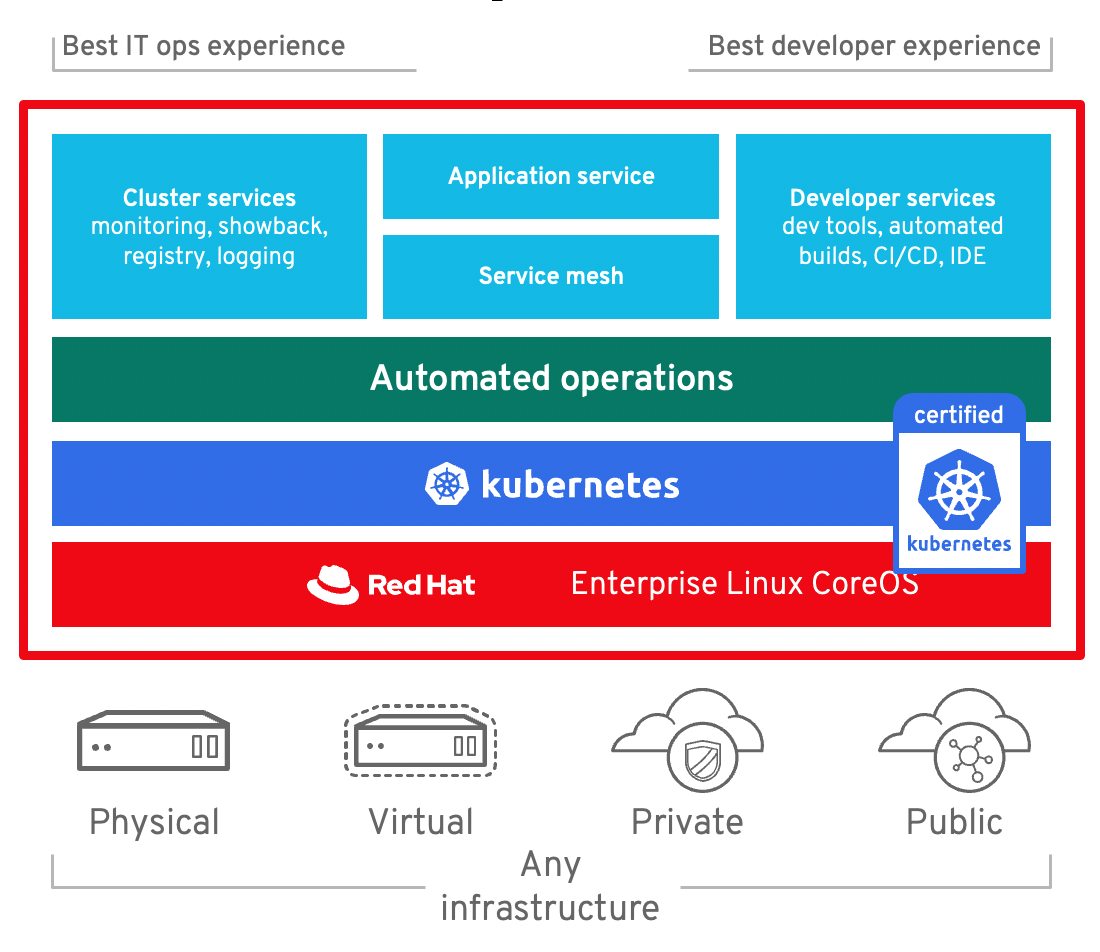Why Containers?
Containers are highly efficient vehicles for developing and deploying apps. As container usage ramps up, the complexity of managing containers across the totality of your IT infrastructure rises exponentially – making a container management platform essential at the enterprise level.
While containers can be thought of as a next generation approach to virtualization, they share one downside with virtual machines: container sprawl (rather than VM sprawl). Given that containers can be deployed in far higher numbers than virtual machines, managing provisioning, deployment, tracking, and repairs of multiple containers across your IT architecture can be extremely challenging.
Container platforms help you deal with this challenge by enabling you to efficiently provision, test, deploy, scale, and run your containers across multiple hosts and operating environments, perform automatic health checks, and ensure high availability in expected workloads.
|
Why Red Hat OpenShift.
- Red Hat OpenShift is a leading hybrid cloud, enterprise Kubernetes application platform, trusted by 1000+ organizations. It brings the benefits of container and cloud native features to any platform:
- Developer, Application and Cluster Services - OpenShift has been a Platform-as-a-Service, meaning that its goal is to make developer’s daily life easier, allowing them to focus on delivering code. Application and Cluster Services like dashboards, monitoring, service meshes, etc. are built in, or you can bring your own.
- Automated Operations - Automated installation and day-2 Operations are OpenShift key features that make it easier to administrate, upgrade, and provide a first-class container platform. OpenShift also includes an extremely rich ecosystem of operators-based solutions, developed by Red Hat and by 3rd party partners.
- Kubernetes - Red Hat OpenShift includes hundreds of fixes to defect, security, and performance issues for upstream Kubernetes in every release. It is tested with dozens of technologies and is a robust, tightly-integrated platform. Certified to always expose all the APIs and features of native Kubernetes and includes software-defined networking, storage and third-party plug-ins for every release.
- RHEL/CoreOS - Normalizes across all infrastructure elements within Private and Public clouds. Built on pervasive Red Hat Linux, slimmed down, immutable and optimized to run secure containers and to stay current with the high cadence of cloud-native change.
|
